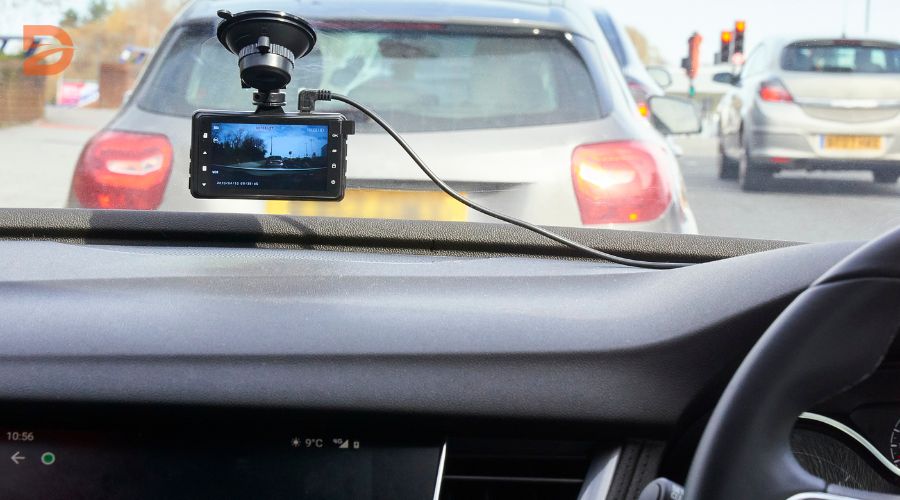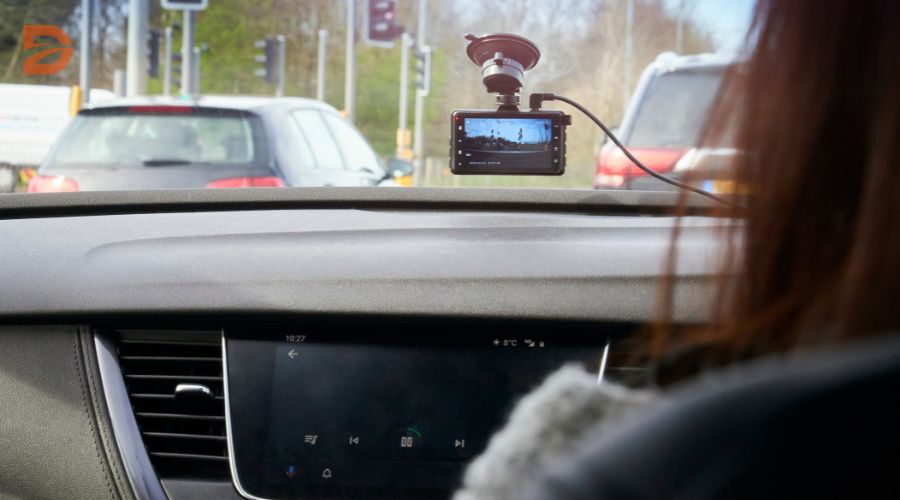In today’s fast-paced world, where every moment on the road can be critical, having a reliable dashcam has become a necessity for many drivers. But what if your dashcam could do more than just record the drive? What if it could seamlessly integrate with the cloud, providing you with enhanced features and peace of mind? Welcome to the world of cloud-connected dashcams – the ultimate solution for easy video storage and remote access.
Are you tired of constantly managing your dashcam’s storage or worrying about missing crucial footage? Discover the key to effortless video backup and accessibility with our comprehensive guide to the top cloud-connected dashcams of 2023.
Key Takeaways
- Explore the best cloud-connected dashcams for seamless video storage and remote access.
- Understand the benefits of cloud integration, including remote live view, GPS tracking, and impact/motion detection notifications.
- Compare camera resolution, pricing, parking event notifications, and power draw across leading cloud-connected models.
- Discover how cloud-connected dashcams can provide peace of mind and convenience on the road.
- Learn about the latest advancements in cloud-based video backup and remote playback for automotive cameras.
Understanding Cloud-Connected Dashcams
In the world of automotive technology, cloud-connected dash cams have emerged as a game-changer. These innovative devices seamlessly integrate cloud storage and virtual storage capabilities, revolutionizing the way drivers and fleet managers capture, store, and access critical footage.
What is the Cloud in Dash Cams?
The cloud in dashcams refers to the ability of the device to connect to the internet and store video files in a virtual server. This cloud-based approach offers several advantages, including automatic cloud backup of footage, remote access, and advanced features like instant impact and motion detection notifications. With cloud-connected dash cams, drivers and businesses can enjoy greater security and convenience compared to traditional, non-connected models.
How do Dash Cams Connect to the Cloud?
To leverage the cloud capabilities of these dashcams, stable internet connectivity is required. This can be achieved through various means, such as Wi-Fi, a mobile hotspot, or even built-in LTE connectivity. Users must also set up an account with the dashcam brand’s mobile app or desktop software to fully utilize the cloud-based features and access the stored footage remotely.
| Cloud Connectivity Features | Thinkware CONNECTED | BlackVue |
|---|---|---|
| Remote Live View | ✓ | ✓ |
| Impact and Motion Detection Notifications | ✓ | ✓ |
| GPS Tracking | ✓ | ✓ |
| Two-Way Voice Communication | – | ✓ |
| LTE Connectivity | – | ✓ |
As the demand for advanced cloud-connected dashcams continues to grow, drivers and fleet managers alike are embracing the enhanced security, convenience, and connectivity these devices provide.
Key Features of Cloud-Connected Dashcams
Cloud connectivity in modern dashcams offers a range of advanced features that enhance vehicle monitoring, security, and fleet management. One key capability is remote live view, which allows users to access a real-time video feed from their dashcam, enabling them to monitor their vehicle’s surroundings remotely. Coupled with GPS tracking, this feature provides the ability to locate the vehicle and track its driving history, making it invaluable for fleet management and keeping tabs on teen or employee drivers.
Another standout feature of cloud-connected dashcams is their ability to detect impacts or motion around the vehicle and instantly send push notifications to the user’s smartphone. This security-focused functionality ensures drivers are alerted to potential incidents or break-ins, even when the vehicle is parked.
The cloud connectivity of these dashcams also ensures that video footage is automatically backed up to the cloud, preventing the loss of crucial evidence in the event of theft or damage to the physical device. Users can then remotely access and playback the recordings through their mobile app or web browser, making it easy to review incidents and gather video evidence.
Remote Live View and GPS Tracking
Cloud-connected dashcams enable users to remotely access a live video feed from their vehicle, allowing for real-time monitoring of their surroundings. This remote live view feature, coupled with GPS tracking, provides the ability to locate the vehicle and monitor its driving history, making it a valuable tool for fleet management and keeping tabs on teen or employee drivers.
Impact and Motion Detection Notifications
These dashcams are equipped with sensors that can detect impacts or motion around the vehicle and instantly send push notifications to the user’s smartphone. This security feature ensures drivers are alerted to potential incidents or break-ins, even when the vehicle is parked, providing peace of mind and a valuable security layer.
Video Backup and Remote Playback
The cloud connectivity of these dashcams automatically backs up video footage, preventing the loss of crucial evidence in the event of theft or damage to the physical device. Users can then remotely access and playback the recordings through their mobile app or web browser, simplifying the process of reviewing incidents and gathering video evidence.
Cloud-Connected Dashcams: Top Picks
When it comes to choosing the right cloud-connected dash cam, several factors come into play – from camera resolution and pricing to features like parking mode, motion detection, and battery drain. Let’s dive in and explore some of the top options on the market.
Camera Resolution and Pricing Comparison
The leading cloud-connected dash cams offer a range of camera resolutions, from 1080p to stunning 4K. Higher resolutions naturally come with a higher price tag, but the added detail and clarity can be well worth the investment. For instance, the Nextbase iQ Smart Dash Cam is available in 1K, 2K, and 4K variants, allowing you to choose the resolution that best fits your needs and budget.
In the budget-friendly category, the Garmin Dash Cam Mini 2 stands out as a great value option, recording in Full HD at 30fps with impressive HDR performance. On the other end of the spectrum, the Nextbase 622GW offers top-of-the-line 4K video with advanced low-light algorithms for exceptional detail, even in challenging conditions.
Parking Event Notifications and Power Draw
One of the key advantages of cloud-connected dash cams is their ability to detect and notify users of parking events, such as bumps or break-ins. This added layer of security can provide peace of mind, especially when your vehicle is unattended. However, the constant power draw of these features can vary significantly between models, with some consuming more battery than others when left in parking mode.
For instance, the Miofive S1 Ultra, a budget-friendly 4K dash cam, offers integrated GPS functionality and parking event detection, all for under $100 / £100. On the other hand, the Nextbase iQ’s Witness Mode, which captures footage upon impact or motion detection, is designed to minimize battery drain, making it a reliable option for extended parking surveillance.
Cloud-connected dashcams, video storage
Cloud-connected dashcams offer secure and convenient video storage solutions. With these advanced devices, footage is automatically backed up to the cloud, ensuring it is not lost if the physical dashcam is damaged or stolen. Users can remotely view and download recordings, making it easy to retrieve video evidence as needed.
Many premium dashcam brands, such as Garmin, Nextbase, BlackVue, and Thinkware, offer cloud connectivity with various features and functions. For example, Thinkware’s CONNECTED service, available on models like the Q1000 and U3000, provides remote live view, impact notifications, vehicle status tracking, and emergency SOS features – all at no additional cost to the user.
BlackVue dashcams also offer a range of cloud-enabled capabilities, including remote live view, two-way voice communication, instant push notifications, remote video playback, live event uploads, GPS tracking, and event mapping. BlackVue even provides an optional LTE accessory, the CM100G, to enable instant mobile hotspot connectivity for these cloud features.
The advantages of cloud-connected dashcams extend beyond just video storage and remote access. These devices are ideal for fleet management solutions and individual car security, as they can send alerts to your phone when an incident, such as an impact, occurs while your vehicle is parked. With the ability to remotely monitor your car from anywhere in the world, cloud dashcams provide an extra layer of safety and convenience.
However, it’s important to note that cloud dashcam connectivity requires either a WiFi hotspot in the car or a SIM card directly in the camera. Additionally, the large file sizes of 4K video recordings can pose challenges for data storage and transmission, leading manufacturers to often send compressed, lower-resolution footage to the cloud for seamless backup and access.
Conclusion
Cloud-connected dashcams offer a transformative experience for drivers, providing advanced features and convenience beyond traditional models. These innovative devices utilize the power of cloud connectivity to deliver remote live view, impact and motion detection alerts, GPS tracking, and automatic cloud backup, ensuring greater security, control, and peace of mind on the road.
When selecting a cloud-connected dashcam, it’s important to consider factors like camera resolution, pricing, and power draw to find the best option that aligns with your specific needs. The integration of LTE technology further enhances the functionality of these devices, enabling real-time video streaming, immediate incident reporting, and seamless integration with mobile devices and apps.
With the growing adoption of cloud-connected dashcams, the impact on road safety is undeniable. These cutting-edge devices not only provide reliable evidence in the event of an accident or incident but also empower drivers with the tools to proactively monitor their surroundings, ultimately contributing to a safer and more secure driving experience.
FAQ
What is the cloud in dash cams?
The cloud in dashcams refers to the ability of the device to connect to the internet and store video files in a virtual server. This allows for automatic backup of footage, remote access, and advanced features like instant notifications.
How do dash cams connect to the cloud?
Cloud-connected dash cams require a stable internet connection to access cloud features. This can be achieved through Wi-Fi, a mobile hotspot, or built-in LTE connectivity. Users must also set up an account with the dashcam brand’s mobile app or desktop software to fully utilize the cloud capabilities.
What are the key features of cloud-connected dashcams?
Cloud connectivity allows users to remotely access a live video feed from their dashcam, enabling real-time monitoring of their vehicle’s surroundings. The GPS tracking feature also provides the ability to locate the vehicle and monitor its driving history. Cloud-connected dash cams can detect impacts or motion around the vehicle and instantly send push notifications to the user’s smartphone, providing valuable security features.
How do cloud-connected dashcams provide video storage and access?
The cloud connectivity of these dashcams ensures that video footage is automatically backed up, preventing the loss of crucial evidence in the event of theft or damage to the physical device. Users can also remotely access and play back recordings through their mobile app or web browser, making it easy to review incidents.
What should I consider when comparing cloud-connected dashcam models?
Leading cloud-connected dash cam models offer a range of camera resolutions, from 1080p to 4K, with corresponding price points. Factors like monthly subscription fees and overall two-year cost of ownership should be considered when comparing options. The ability to detect and notify users of parking events, such as bumps or break-ins, is a key advantage, but the power draw of these features can vary significantly between models.











